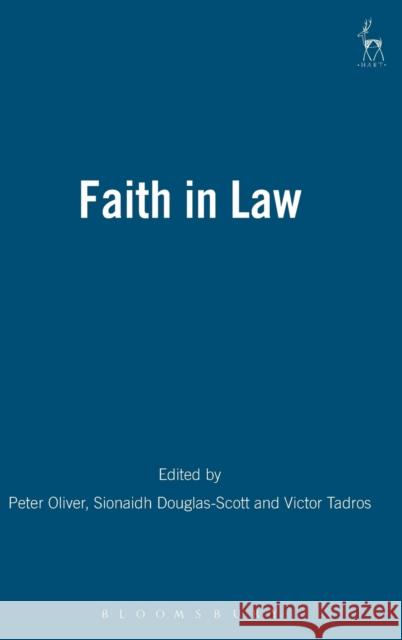Faith in Law » książka
Faith in Law
ISBN-13: 9781901362954 / Angielski / Twarda / 2000 / 160 str.
These essays explore, broadly speaking, two related issues: first, the extent to which we have confidence in law to deal with the range of social, political and moral issues which constantly confront us; second, the extent to which law makes room for perspectives which do not speak law's traditional language of logic, reason, certainty, and so forth. Faith in this context refers to that which is known or experienced in ways which are difficult to articulate or justify, but which are nonetheless real and undeniable to many individuals and groups. This idea of faith extends beyond the encounter between law and religion and embraces those who, not having a religious faith, still feel marginalised or excluded by the dominant discourse of law. Is the law a battleground on which only the most powerful discourses prevail? Or does justice require recognition that some truths are ineffable, and that law must accommodate and seek to understand rather than exclude or comprehend (in the sense of absorbing or appropriating divergent views)? The contributors approach these and other related issues from highly individualistic perspectives and adopt the methods of various legal and philosophical traditions. Accordingly, these essays should engage all those interested in legal, critical and social theory, human rights, law and religion.











